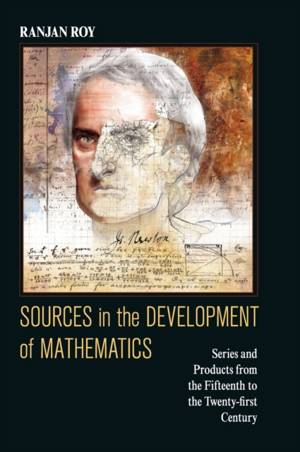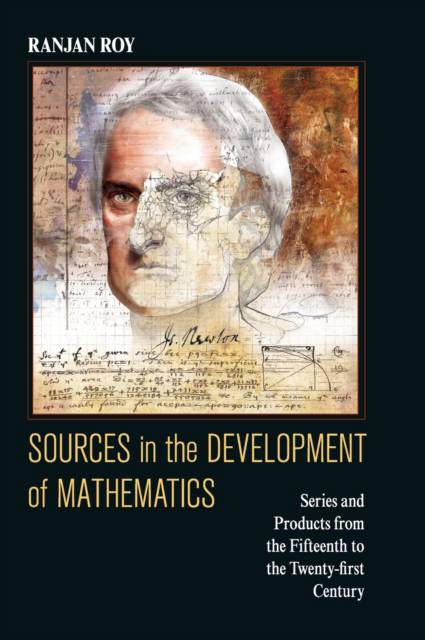
- Afhalen na 1 uur in een winkel met voorraad
- Gratis thuislevering in België vanaf € 30
- Ruim aanbod met 7 miljoen producten
- Afhalen na 1 uur in een winkel met voorraad
- Gratis thuislevering in België vanaf € 30
- Ruim aanbod met 7 miljoen producten
Zoeken
Sources in the Development of Mathematics
Infinite Series and Products from the Fifteenth to the Twenty-First Century
Ranjan Roy
Hardcover | Engels
€ 118,95
+ 237 punten
Omschrijving
The discovery of infinite products by Wallis and infinite series by Newton marked the beginning of the modern mathematical era. It allowed Newton to solve the problem of finding areas under curves defined by algebraic equations, an achievement beyond the scope of the earlier methods of Torricelli, Fermat, and Pascal. Newton and his contemporaries, including Leibniz and the Bernoullis, concentrated on mathematical analysis and physics. Euler's prodigious accomplishments demonstrated that series and products could also address problems in algebra, combinatorics, and number theory. Series and products have continued to be pivotal mathematical tools in the work of Gauss, Abel, and Jacobi in elliptic functions; in Boole's and Lagrange's infinite series and products of operators; in work by Cayley, Sylvester, and Hilbert in invariant theory; and in the present-day conjectures of Langlands, including that of Shimura-Taniyama, leading to Wiles's proof of Fermat's last theorem. In this book, Ranjan Roy describes many facets of the discovery and use of infinite series and products as worked out by their originators, including mathematicians from Asia, Europe, and America. The text provides context and motivation for these discoveries; the original notation and diagrams are presented when practical. Multiple derivations are given for many results, and detailed proofs are offered for important theorems and formulas. Each chapter includes interesting exercises and bibliographic notes, supplementing the results of the chapter. These original mathematical insights offer a valuable perspective on modern mathematics. Mathematicians, mathematics students, physicists, and engineers will all read this book with benefit and enjoyment.
Specificaties
Betrokkenen
- Auteur(s):
- Uitgeverij:
Inhoud
- Aantal bladzijden:
- 974
- Taal:
- Engels
Eigenschappen
- Productcode (EAN):
- 9780521114707
- Verschijningsdatum:
- 30/06/2011
- Uitvoering:
- Hardcover
- Formaat:
- Ongenaaid / garenloos gebonden
- Afmetingen:
- 185 mm x 257 mm
- Gewicht:
- 1882 g

Alleen bij Standaard Boekhandel
+ 237 punten op je klantenkaart van Standaard Boekhandel
Beoordelingen
We publiceren alleen reviews die voldoen aan de voorwaarden voor reviews. Bekijk onze voorwaarden voor reviews.











